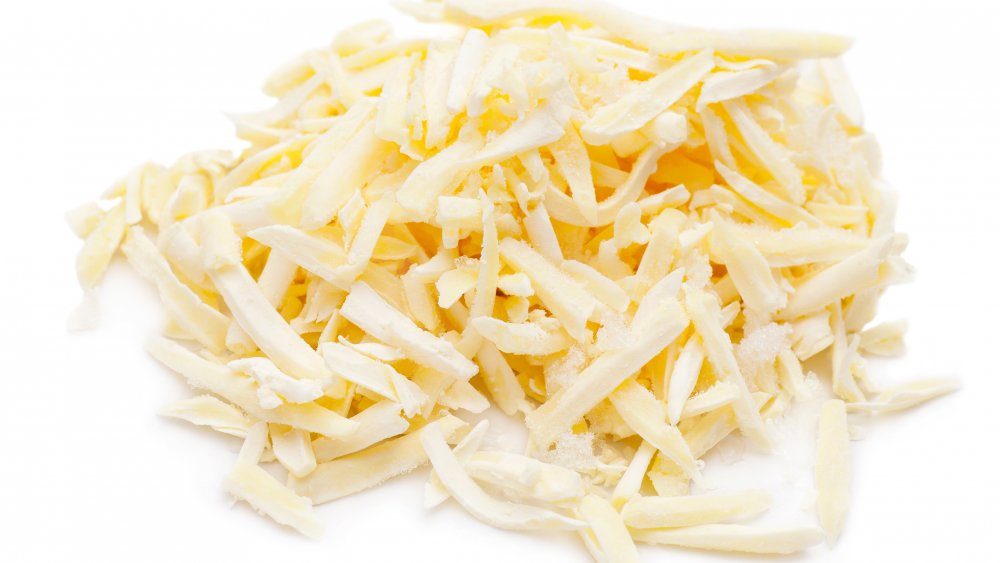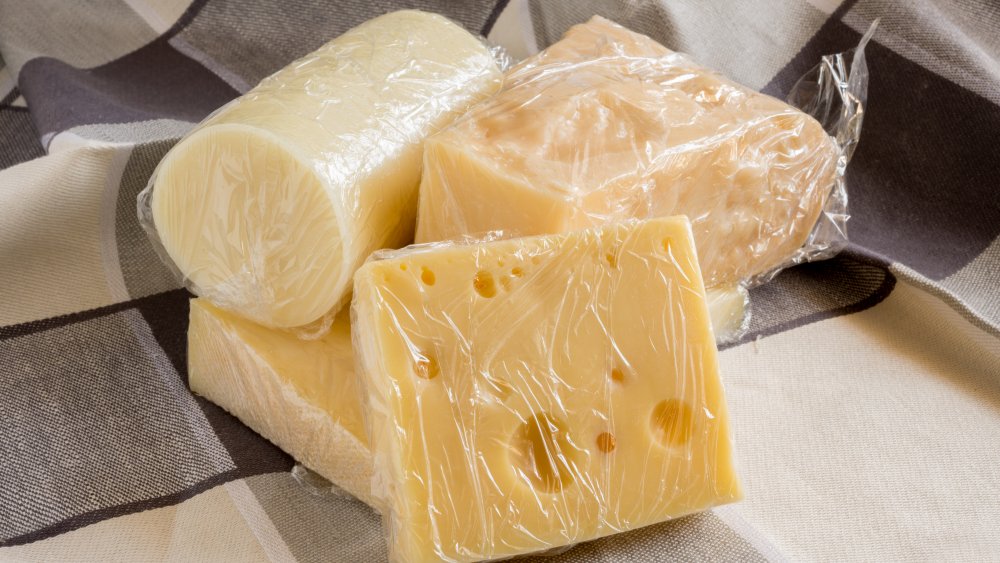How To Freeze Cheese The Right Way
Encountered a load of cheese on deep discount? Accidentally overbought for your latest kitchen experiment? Or do you simply want to halt the process of mold growth you've spotted on that block of cheddar in your fridge? (Don't fret — according to Business Insider, you may still be able to eat it safely.)
Whatever created the expiration-date emergency on your surplus cheese stash, you may be able to prolong its life by freezing. Your success, however, will depend on a variety of factors: the type of cheese, its intended use post-freeze, and the cheese's format (for example, shredded vs. block variety).
What cheeses hold up best to freezing?
Healthline notes that some cheeses respond fairly well to freezing, such as shredded varieties like cheddar or mozzarella, while others fail miserably, especially fresh, high-moisture cheeses like cottage cheese, ricotta, and queso fresco, or soft, ripened types like Brie or Camembert. Similarly, Southern Living advises against anything but the fridge life for delicate fresh mozzarella or burrata; if you must try your luck with harder varieties like Parmigiano-Reggiano, try shredding before storing.
And, though Healthline considers any spread or processed cheese a bad candidate, in general, you can look to mass-produced cheeses for better freezing results. Artisanal varieties lose much of their subtle flavor and texture nuances earned by those premium prices, while a chunk of basic cheddar can better maintain its structure under super-cold temps (via The Spruce Eats).
How to store cheese for freezing — and what post-freeze performance to expect
To get the most out of your cheese post-freeze, here are some helpful tips: Ensure that your hunk of cheese clocks in at a half-pound portion or smaller; protect the cheese in a freezer bag or plastic wrap; and thaw for one to two days in the refrigerator before using — then use it as quickly as possible (via DairyGood).
And, no matter what cheese you toss in, don't expect product perfection after it's emerged from a deep freeze. Healthline reports that the process can cause several harmful effects: a dry, mealy, or crumbly texture; diminished "sensory" qualities; or, in the case of shredded mozzarella, less meltability (which worsens further as time in the freezer drags on) — so it's best to use frozen cheeses for recipes in which those diminished qualities will be less noticeable, like sauces or hot sandwiches.


